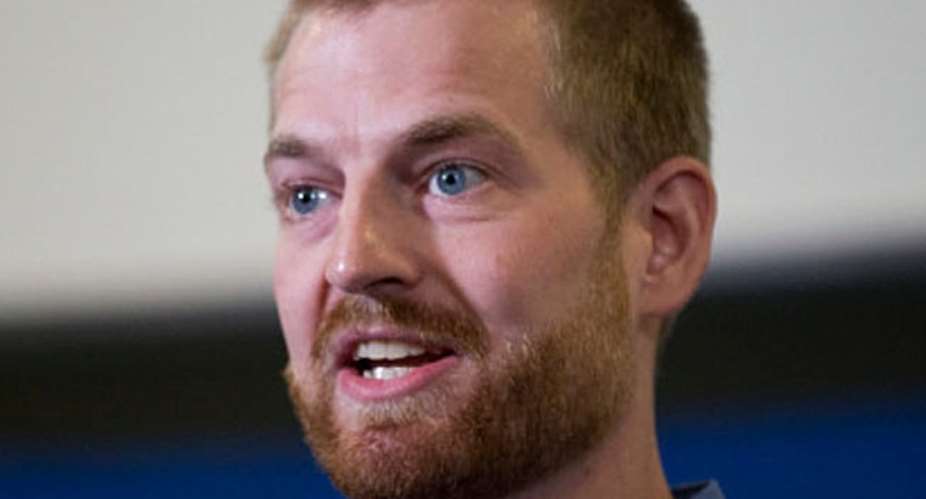“God saved my life!” declared Dr. Kent Brantley, the Ebola doctor whose life was given back to him after taking the experimental drug Zmapp.
Really? God saved your life? Would that be the same God who recently enabled Rory McIlory to win the PGA in my hometown of Louisville?
I hesitate in bringing this up because, frankly, I am moved by the generosity and selflessness of someone like Dr. Brantley who gives his time, and almost his life, to help the sick and infirm in Africa. Genuinely inspiring. I'm not sure I could do that.
It is the theology, however, that increasingly troubles me. His theology, which was once my theology, too, and still is the thinking…the believing…the theology of scores of Christians. When I hear him thanking God for sparing his life, as well as thanking the public for their many prayers, I cannot help but wonder, What about the 1200 Africans who died of Ebola? Why were you spared but they were not?
Did God not see them as worthy of being spared, too? Did they not have enough faith or enough people praying for them to summon his attention? Or, was it just their time to go? And, if so, shouldn't we be amazed at God's miraculous ability to bring into contact with a deadly virus all whose time has come?
Nice of God, wouldn't you say?
Frankly, if this kind of theology had any merit at all – which of course it does not – you'd think God might have chosen a less traumatic method for his murderous execution of the 1200 (and now likely many more) whose time of departure has come.
Maybe it is just me but I am growing more and more disturbed by the trite and troublesome explanations we Christians give for God's involvement in the world. I can certainly understand the doctor's sheer delight at having his life given back to him. I know that feeling of gratitude, too, and better than most, having had my own recent brush with the Grim Reaper when a clogged artery resulted in a heart attack.
Mild, thank God.
Oops, there I go.
Thanking God? Crediting God? What did God have to do with my life being spared? Or, the good doctor's life being given back to him? I'm inclined instead to say today, “God had nothing at all to do with any of it.” I say that, even as I bow my head and offer my thanks again for my life given back to me. I know this need in all of us to express gratitude to something or someone.
But really? Crediting God? Give me a break. I think it is time – no it is past time – we stop blaming God when our “pleas” for help go unanswered or crediting God when good fortune comes our way.
When someone can intelligently and believably explain, “Why did God answer the doctor's prayers and spare him but chose to let die those stricken with Ebola?” you will have my attention. I suspect you will have everyone's attention.
Until then, I can understand why, at the other end of the theological spectrum,thinkers like John Shelby Spong say, “It is time Christians let go of a theistic understanding of God.” Which is, of course, this elementary notion that God is like a benevolent Santa Claus or Superman who lives above the sky and comes to our aid when enough prayers, or the right kind of prayers by the right people, have been offered.
Maybe Spong is right. Maybe this God has died.
Or, never really existed.
Source:





 April 20: Cedi sells at GHS13.63 to $1, GHS13.06 on BoG interbank
April 20: Cedi sells at GHS13.63 to $1, GHS13.06 on BoG interbank
 Dumsor: I'm very disappointed in you for messing up the energy sector — Kofi Asa...
Dumsor: I'm very disappointed in you for messing up the energy sector — Kofi Asa...
 Dumsor: Instruct ECG MD to issue timetable and fire him for lying — Kofi Asare t...
Dumsor: Instruct ECG MD to issue timetable and fire him for lying — Kofi Asare t...
 Ashanti region: Road Minister cuts sod for 24km Pakyi No.2 to Antoakrom road con...
Ashanti region: Road Minister cuts sod for 24km Pakyi No.2 to Antoakrom road con...
 Train crash: ‘How could any normal person leave a car on rail tracks?’ — Frankli...
Train crash: ‘How could any normal person leave a car on rail tracks?’ — Frankli...
 Train crash: Driver of abandoned vehicle not our branch chairman nor secretary —...
Train crash: Driver of abandoned vehicle not our branch chairman nor secretary —...
 Kenya pays military homage to army chief killed in copter crash
Kenya pays military homage to army chief killed in copter crash
 US agrees to pull troops from key drone host Niger: officials
US agrees to pull troops from key drone host Niger: officials
 Mahama vows to scrap teacher licensure exams, review Free SHS policy
Mahama vows to scrap teacher licensure exams, review Free SHS policy
 Government will replace burnt Madina shops with a new three-story, 120-store fac...
Government will replace burnt Madina shops with a new three-story, 120-store fac...
